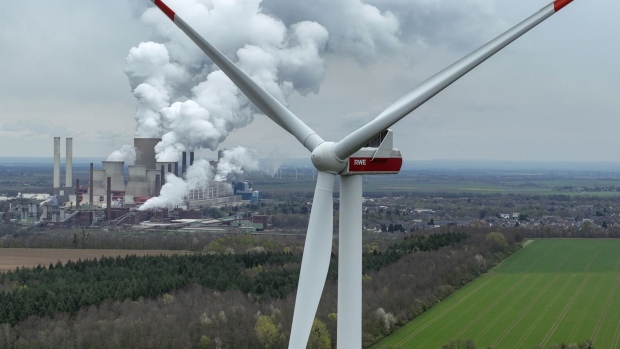War Forces Germany to Put G-7 Coal Phaseout Push on Hold
, Bloomberg News

(Bloomberg) -- German Chancellor Olaf Scholz’s government is backtracking from its Group of Seven agenda to push globally for a speedier exit from coal.
Steffen Hebestreit, the Chancellor’s chief spokesman, said Russia’s war in Ukraine cast doubt over the practicality of asking the world’s richest countries to end the use of coal. Germany is the current holder of the rotating presidency of the G-7 nations, which have taken the lead in pursuing sanctions against Russia.
Despite political pressure to end the use of the dirtiest fossil fuel, coal generation is expected to jump 9% from last year, according to the International Energy Agency. That’s driven by the economic recovery from the pandemic, while countries are also scrambling to find alternative sources to Russian fossil fuels.
Japan and Germany, which have both banned nuclear power, have fewer options than others. And so in Germany, coal-fired power plants that were once decommissioned are now being considered for a second life.
Germany’s “G-7 presidency is taking place in an international political situation which has clearly changed after Russia’s attack on Ukraine and its impact on energy supply,” said Hebestreit in response to questions on Wednesday.
“It’s questionable as to whether this topic will be directly addressed in this acute phase where we are working to become more independent from oil and gas,” he said.
As G-7 leader, the German government had previously said that its priorities include efforts to accelerate the global phaseout of coal. Ministers circulated a draft proposal, calling on countries to halt coal-fired power plants by 2030, according to Japan’s Asahi newspaper on Tuesday.
German officials presented the draft proposal to a preparatory meeting, ahead of an upcoming G-7 environment, climate and energy summit. But that prompted pushback from Japan’s government, which said it would continue to curb coal use at home, while also recognizing its energy security needs.
©2022 Bloomberg L.P.
No comments:
Post a Comment